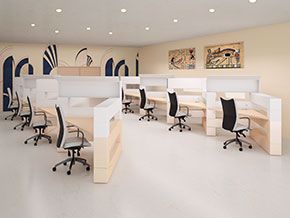Company culture lives in the reasons WHY a company is in business. Out of this WHY (or purpose), company culture is born. Because the WHY lives in the heart, everything a company says and does, and how it looks, smells, and tastes (if you will) exists for that reason. We call this company culture.
Company culture can be volatile stuff, insofar as it can die just as surely as it was brought to life simply by forgetting the WHY. When the WHY is forgotten or muddied by other interests, company culture suffers. Everything that used to be honored—fulfilling promises, commitment to detail, worker appreciation, and product quality—falls apart.
Looking toward the future, if we were to interview company owners or top-of-the-food-chain leaders today, I would assert that they could tell us the purpose for the existence of their businesses. However, according to Gallup, only 27 percent of workers are on board with their company’s values. With this trajectory, the future of outstanding company culture is abysmal.
Workplace culture defines the brand. The way workers feel about their company translates to how customers view the brand, as well. If workers believe in the purpose, and the company backs it up through culture, workers will speak highly to customers, gain greater trust, and be convincing about value.
At 90 Degree Office Concepts, we routinely witness this firsthand. For example, our builders know they must produce flawless work, and if it doesn’t pass the inspection of team members, they need go back and do it over. Conversely, if we ever allowed products to go out subpar, we know (because we’ve been there) that builders would not take pride in their work, and clients would eventually develop a low opinion of the brand.
Companies with superior culture inspire workers to create amazing customer experiences. Customers know that when a company like this commits to an outcome, they can depend upon it—otherwise, the company loses credibility and even customers.
Sadly, in another Gallup poll, only 26 percent of workers in the U.S. said their companies delivered on promises to clients or customers. That means you have an almost 75 percent chance of not getting what you pay for.
According to our research, only 41 percent of workers claim they fully understand what their company’s principles are and what the company stands for, and feel they can explain what sets them apart from other companies.
Without a clear understanding of what sets us apart from others that walk and talk like us, how will workers know how to perform moving forward?
Understanding Why Office Culture Matters
It’s a fact that the very best applicants look at working for the best companies. They want to work for companies that are on the move forward, companies in which they can grow and be a part of something bigger than themselves. They want to contribute their efforts to organizations that are making a difference, not just getting by. This is especially evident with millennials: 71 percent say even though they understand what the company stands for, they expect to leave within a year.
When a company’s workers are in harmony with company culture, performance is at and all-time high, according to statistics.
One in three employees worldwide strongly agree with this statement: “The mission or purpose of my organization makes me feel my job is important.” By doubling that ratio, business units have realized a 34 percent reduction in absenteeism, a 42 percent drop in safety incidents, and 19 percent improvement in quality.
Companies Need to Change the Direction of their Culture Now, for the Future
As we can see, company culture as a whole is generally weak throughout organizations. Workers are not on board with what their companies stand for. This decline in culture is costing companies a fortune. If companies want to get better at what they do, an investment in culture is a low-cost pathway.
At 90 Degree Office Concepts, we believe the way a company treats workers can be seen in how they provide for them, how they coach them to grow and learn, and how the workplace environment contributes to the culture and future growth of the whole organization.









